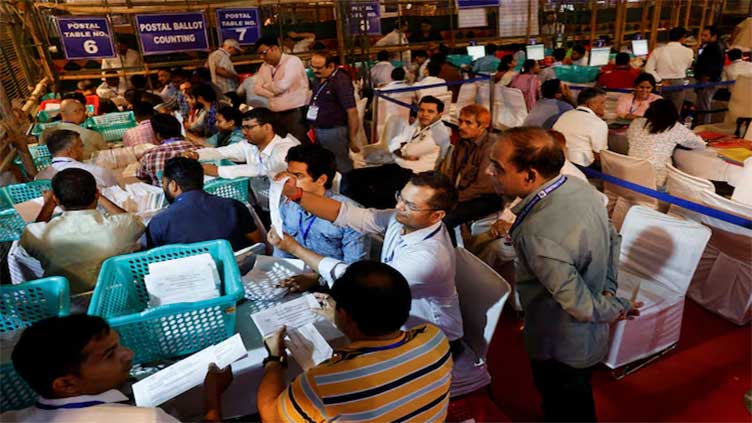India election throws up surprise as Modi's alliance scrapes past majority

World
Modi's Hindu nationalist BJP won a majority of its own in 2014 and repeated the feat in 2019
(Reuters) – Indian Prime Minister Narendra Modi's National Democratic Alliance (NDA) is likely to win a majority in parliament, early vote counting showed on Tuesday, but well short of a landslide predicted by exit polls.
Modi's Hindu nationalist Bharatiya Janata Party (BJP) won a majority of its own when it swept to power in 2014, ending an era of unstable coalition governments, and repeated the feat in 2019.
Here are some reactions from analysts:
YASHWANT DESHMUKH, FOUNDER, POLLING AGENCY CVOTER FOUNDATION
"BJP and NDA's seat share is lower-than-expected. There is only one state that has gone completely off the charts in our data: Uttar Pradesh. And that has pulled down the BJP's own tally as well and this is the reason they are unable to touch the majority mark on their own at this point of time.
"BJP's two allies have become extremely important now – Chandrababu Naidu and Nitish Kumar, now that BJP might not get its own majority."
RASHEED KIDWAI, VISITING FELLOW, OBSERVER RESEARCH FOUNDATION
"I think there was a lot of economic issues. The BJP has performed badly in rural areas. There was lot of defection and manoeuvring that happened in Maharashtra that boomeranged. Too much reliance on Modi did not work.
"This trend shows Modi can be beaten and regional party has come as a big force."
SANDEEP SHASTRI, NATIONAL COORDINATOR, LOKNITI
"The decline in the seats of the BJP is linked to three states, which are Uttar Pradesh, Maharashtra and Rajasthan. In UP particularly the construction and inauguration of the Ram temple did not become a big issue. The social coalition made by Samajwadi Party and Congress seems to have made the difference as it was formidable."
SURENDRA KUMAR DWIVEDI, POLITICAL ANALYST
"The trend very clearly shows that in a state like Uttar Pradesh, which has Ram Temple, the temple is not the only deciding factor anymore and developmental issues especially, which are related to youths like rampant leaks of the competitive examination (services) and unemployment, had made an impact on the youths who were the largest chunk of voters."


